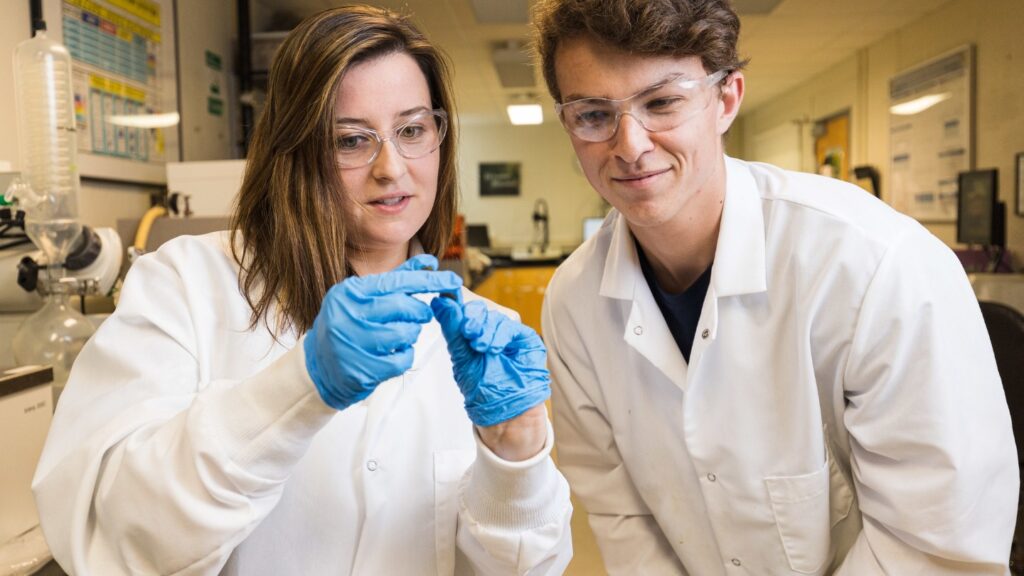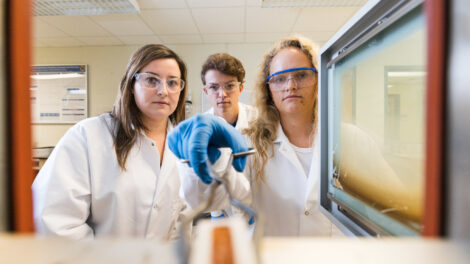Five-year $600,000 award will support Gordon’s work and provide opportunities for students to engage in hands-on research
By Bryan Hay
Melissa Gordon ’11, assistant professor of chemical and biomolecular engineering, has received a National Science Foundation Faculty Early Career Development Program (CAREER) award, the agency’s most prestigious recognition of early-career faculty.
The five-year $600,000 award will support Gordon’s research in force-responsive synthetic polymeric materials.
“In nature, biological systems can constructively respond to mechanical force, such as the healing of skin after a cut,” she says. “Taking this as inspiration, this project aims to develop force-responsive synthetic polymeric materials that can remodel after force is applied. The goal is to externally regulate the extent of force-triggered activation and remodeling using carbon dioxide as an external stimulus.”
Force-responsive synthetic polymeric materials have potential medical uses, including tissue generation and repair, and artificial muscles.
This project will help advance research aimed at developing materials that will offer enhanced safety, longer lifespan, and reduced environmental impact. It also will include educational and outreach activities largely focused on the training and professional development of undergraduates.
“This includes mentored research opportunities for undergraduates, the development of a hands-on module based on this project for a technical elective in polymers, and the implementation of a career module to expose students to career paths in the field,” Gordon says.

Prof. Melissa Gordon ’11 and Jimmy Hastie ’22, who helped outline and organize the NSF proposal.
Finally, this project supports hosting two visiting graduate students, who have interest in a career at primarily undergraduate institutions, for the summer to begin building the skills needed to develop an undergraduate-driven research program.
“I hope that through my research and educational efforts, I am able to make an important impact on students’ academic journey and help them develop the skills and experiences for success in their professional lives,” Gordon says.
She thanked and credited Jimmy Hastie ’22, who contributed to outlining and organizing the proposal, and Hastie and Abby Devlin ’22 for collecting the preliminary data that appeared in the proposal.
“I’m very grateful to NSF for their continued support,” says Gordon, who was supported by an NSF Graduate Research Fellowship during her doctoral studies and a collaborative NSF grant in 2020 focused on the sustainable development of bio-based polymers.
The CAREER program is the NSF’s most prestigious award in support of junior faculty who exemplify the role of teacher-scholars through outstanding research, excellent education, and the integration of education and research within the context of the mission of their organizations. Such activities should build a firm foundation for a lifetime of leadership in integrating education and research, according to the NSF.


